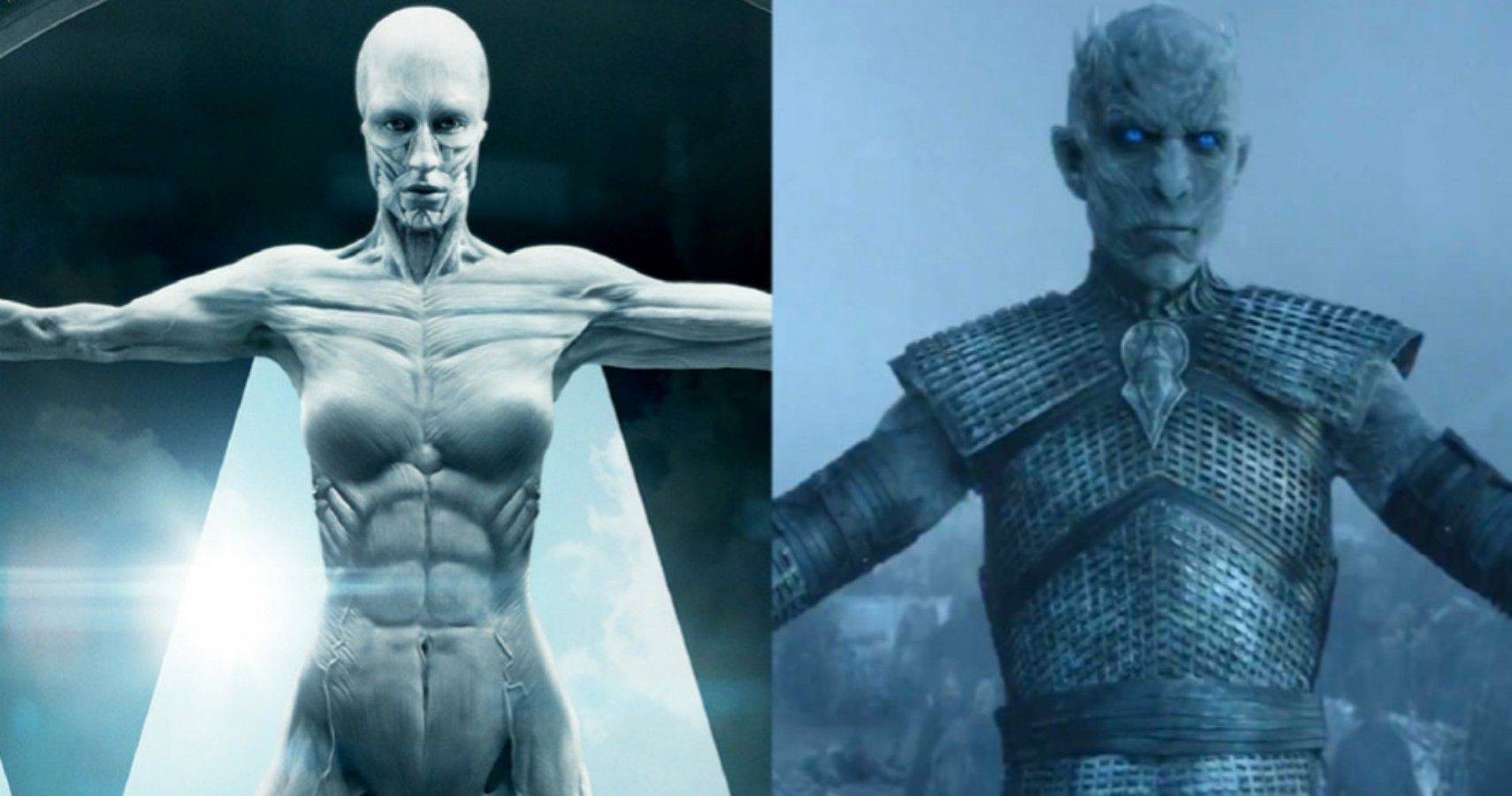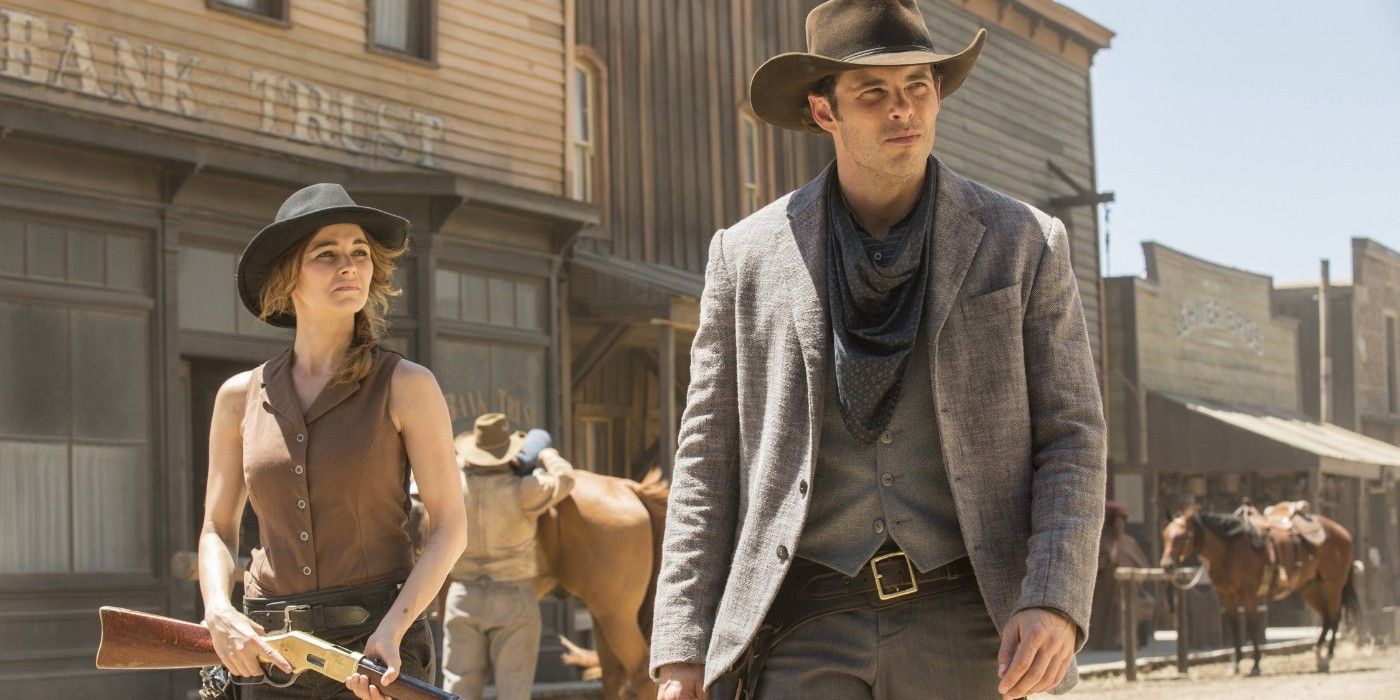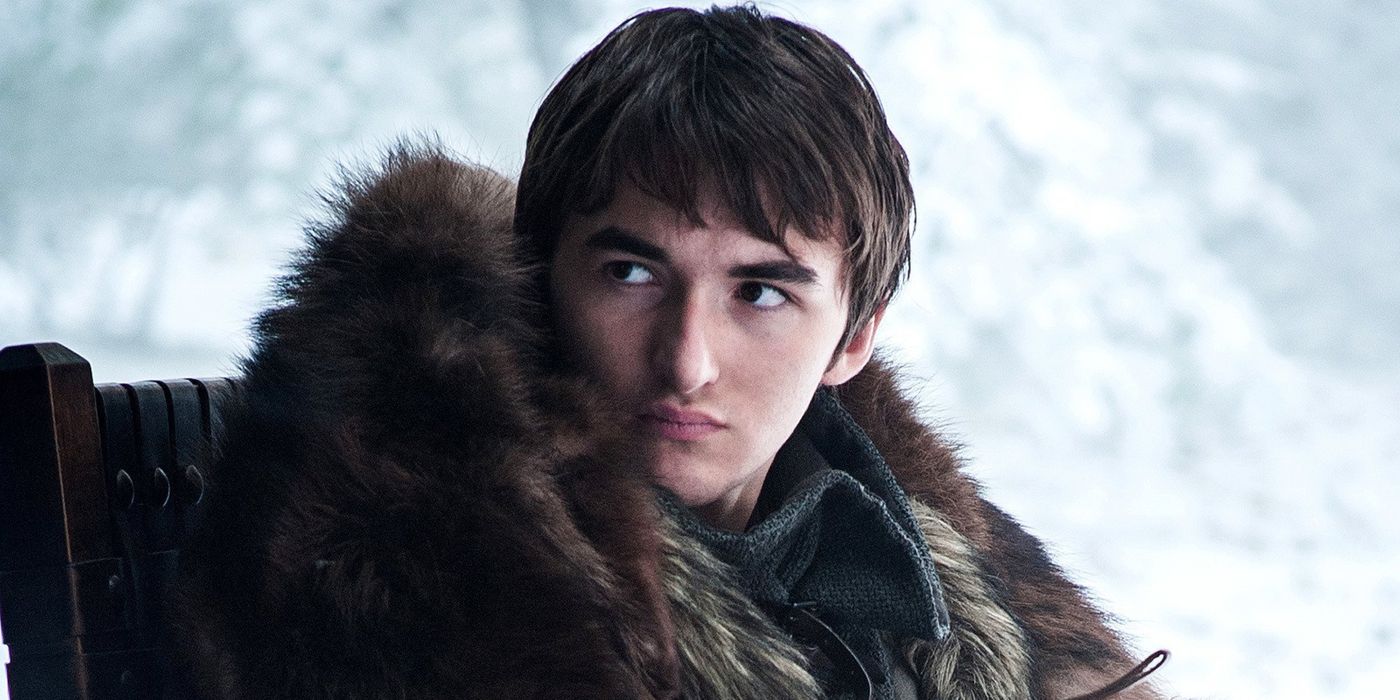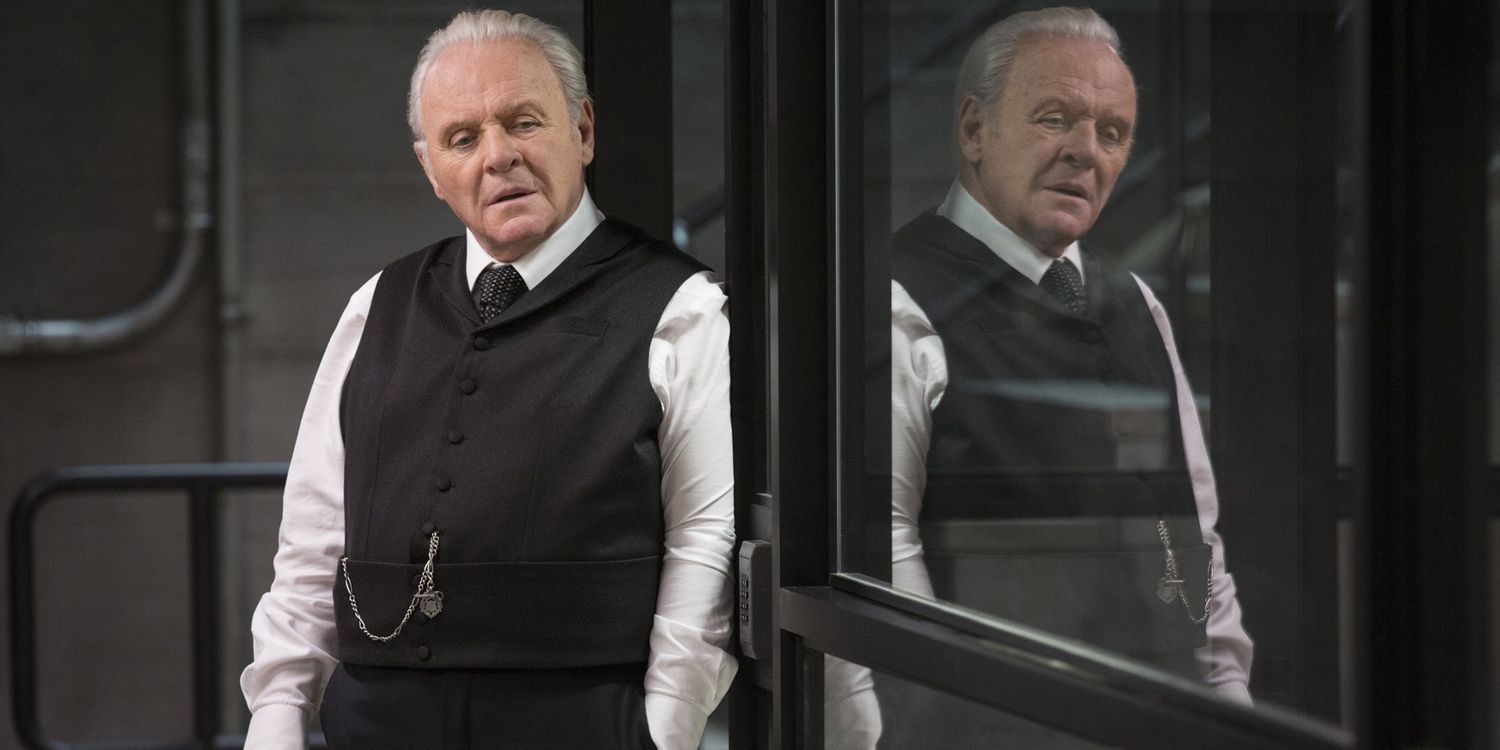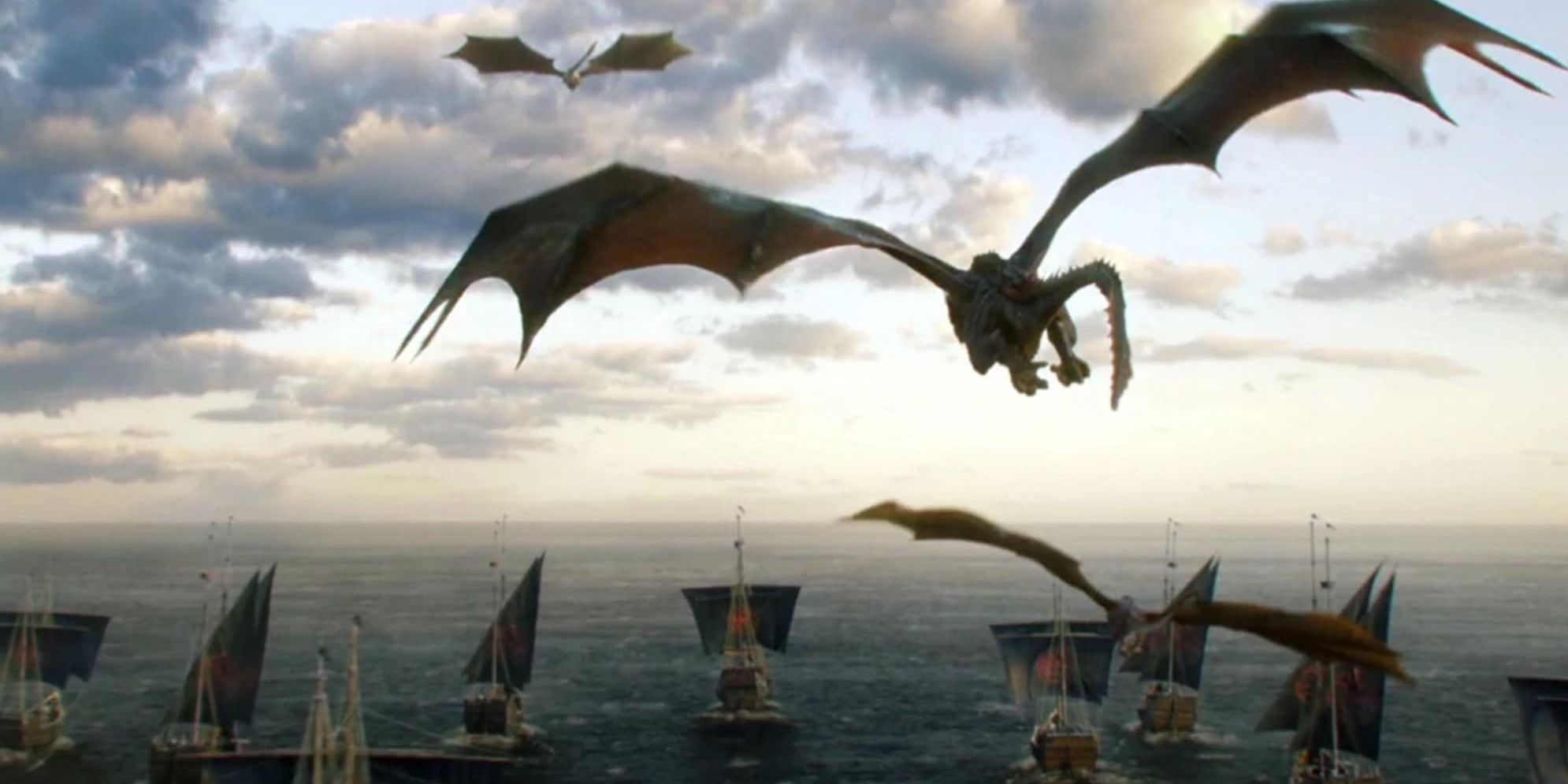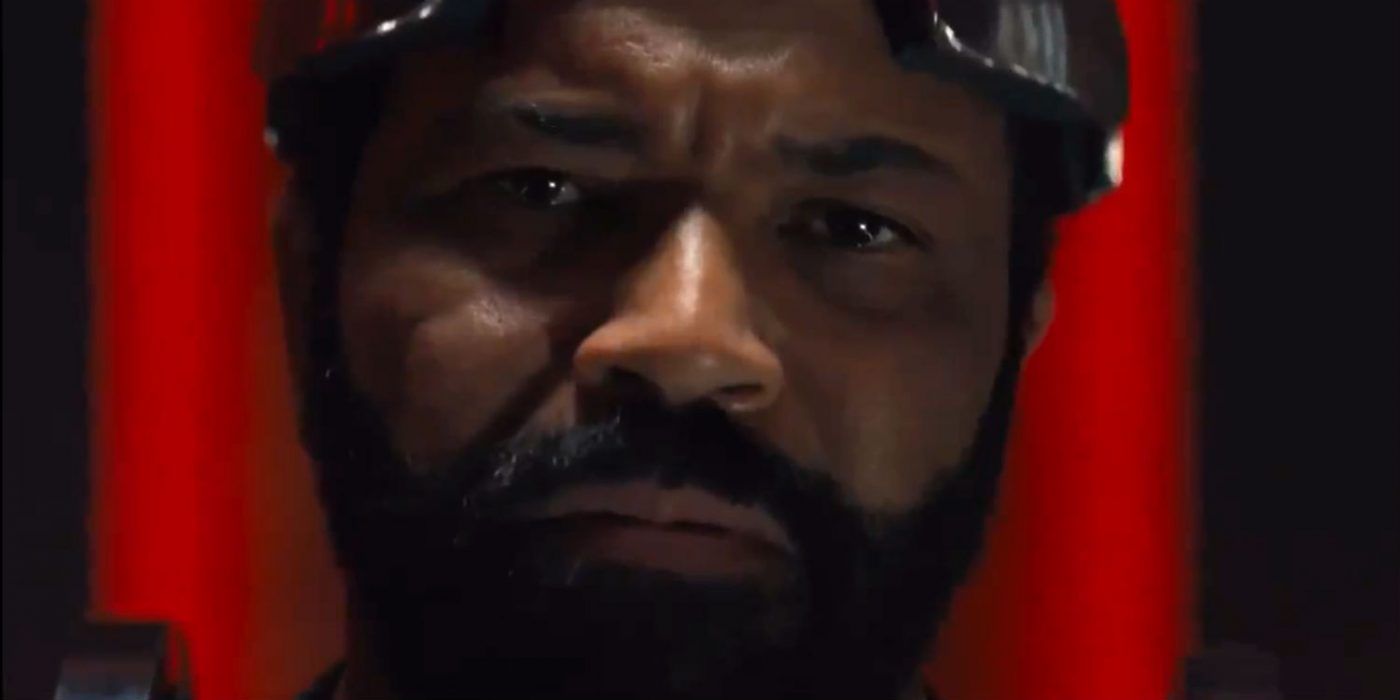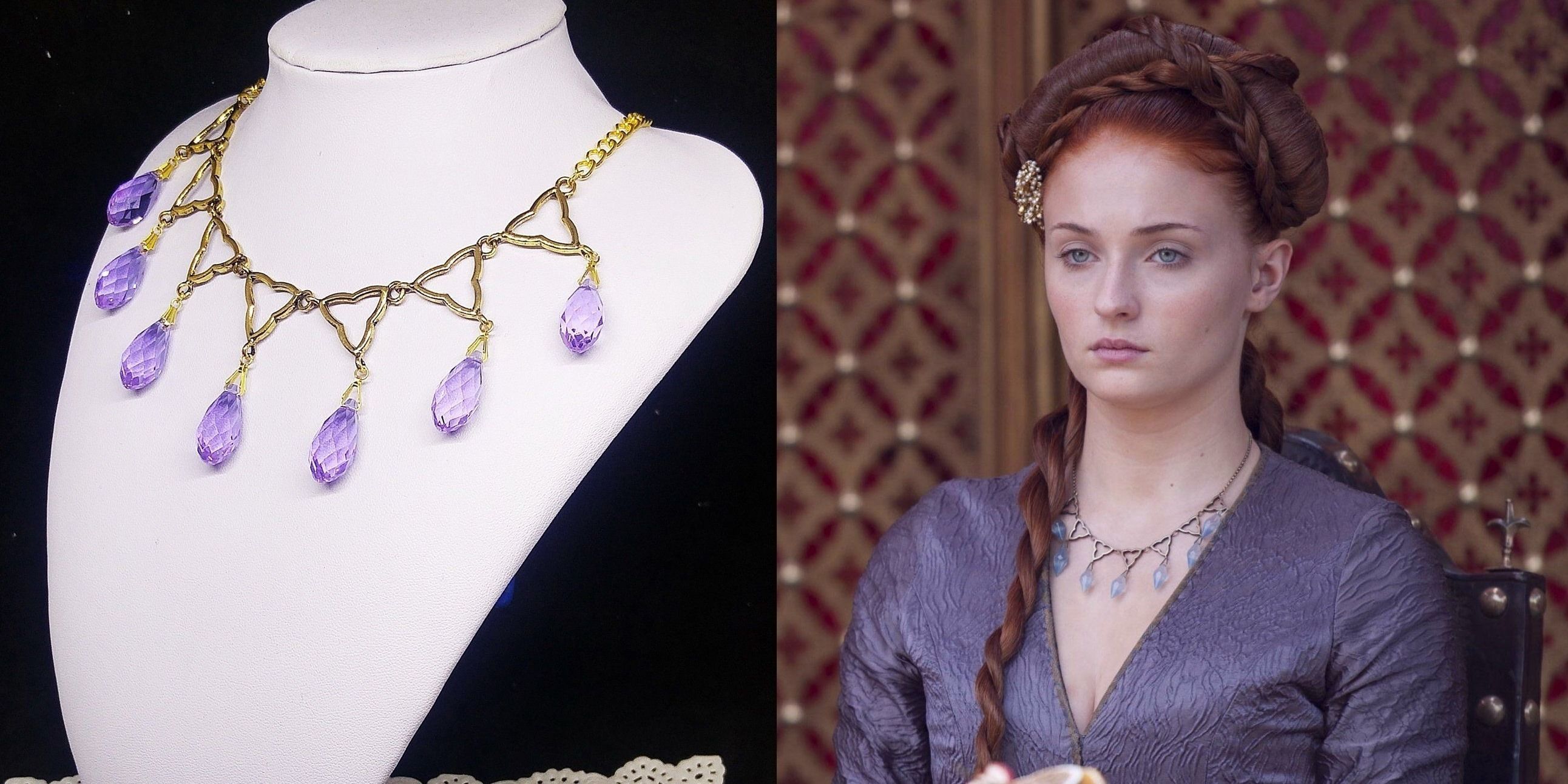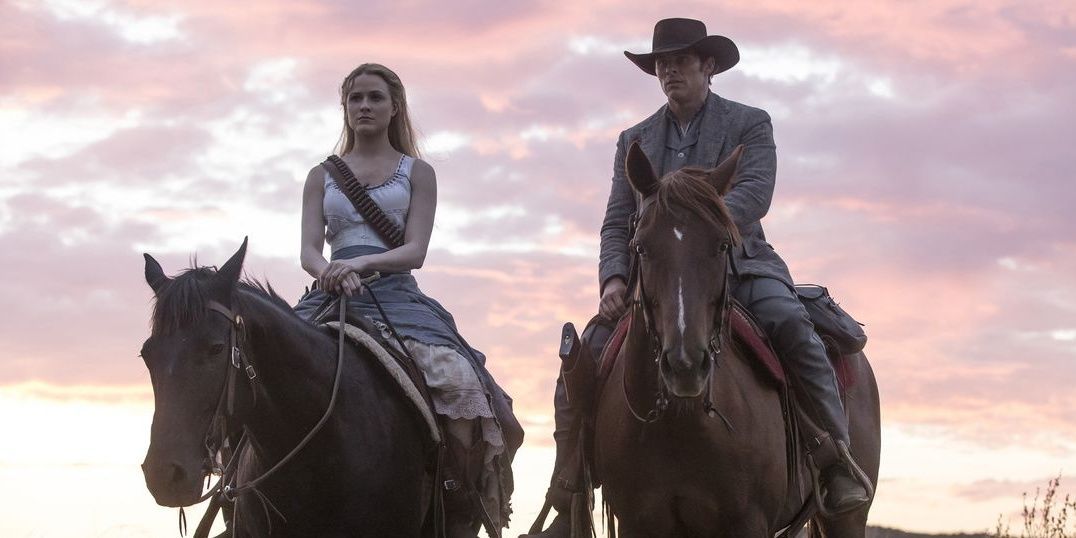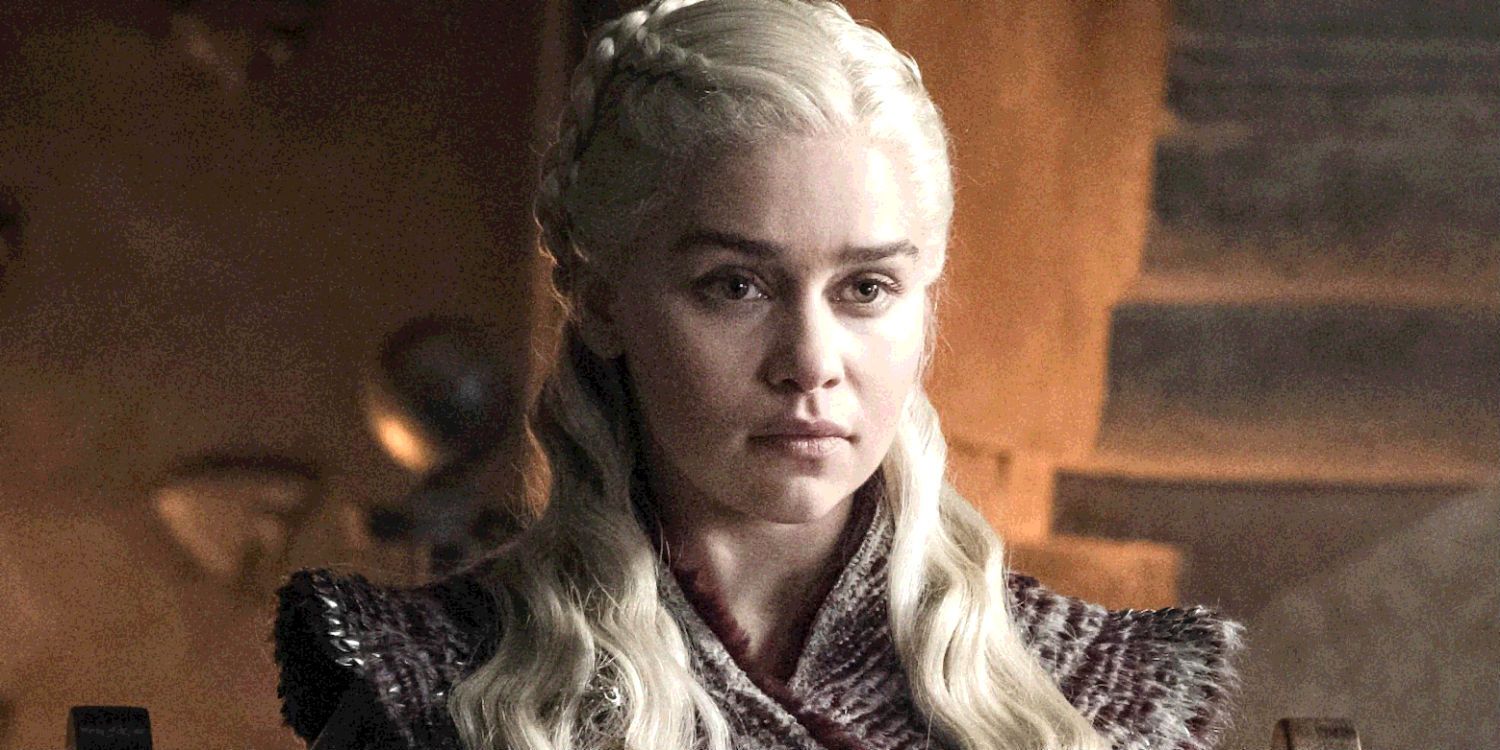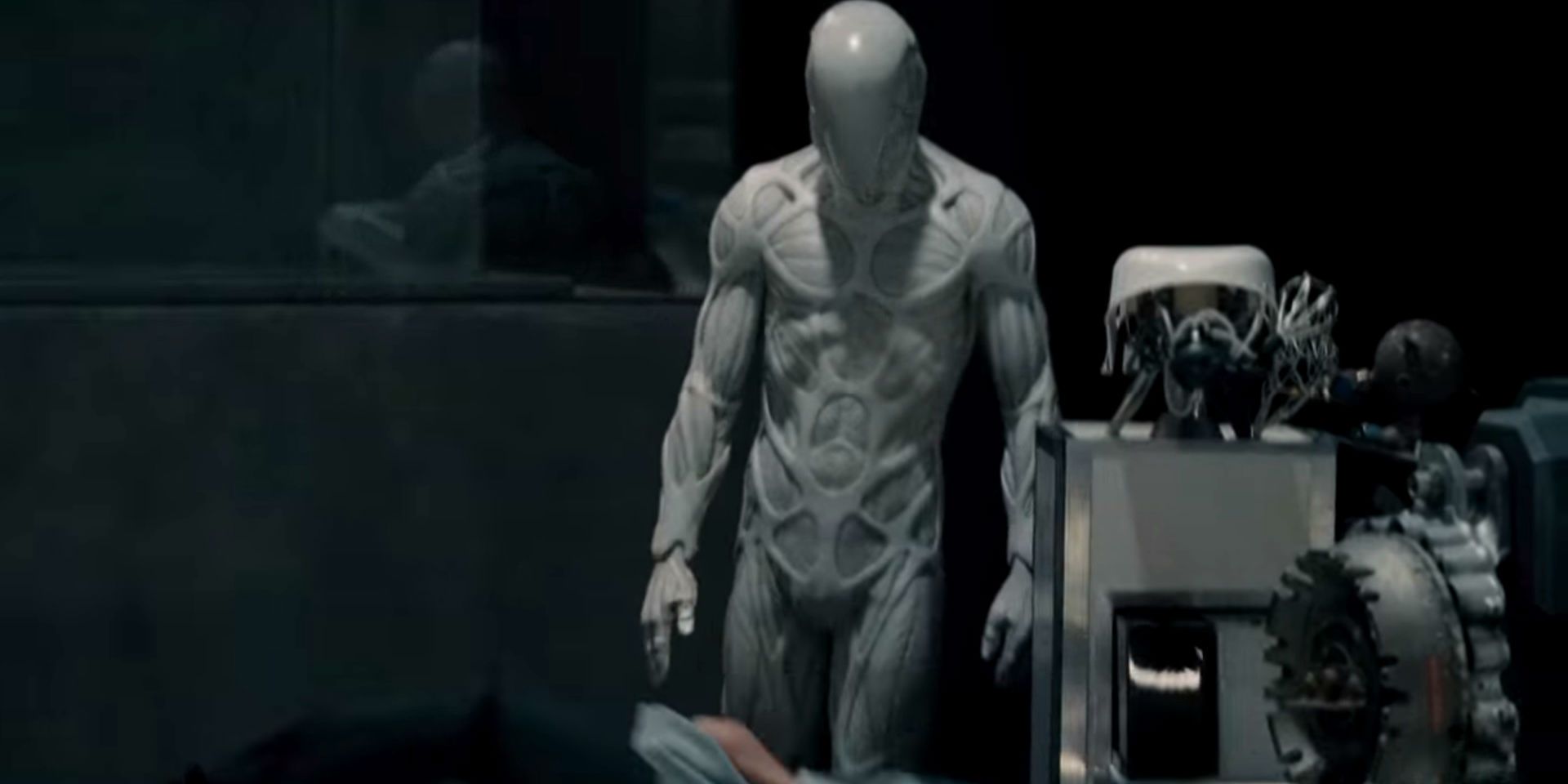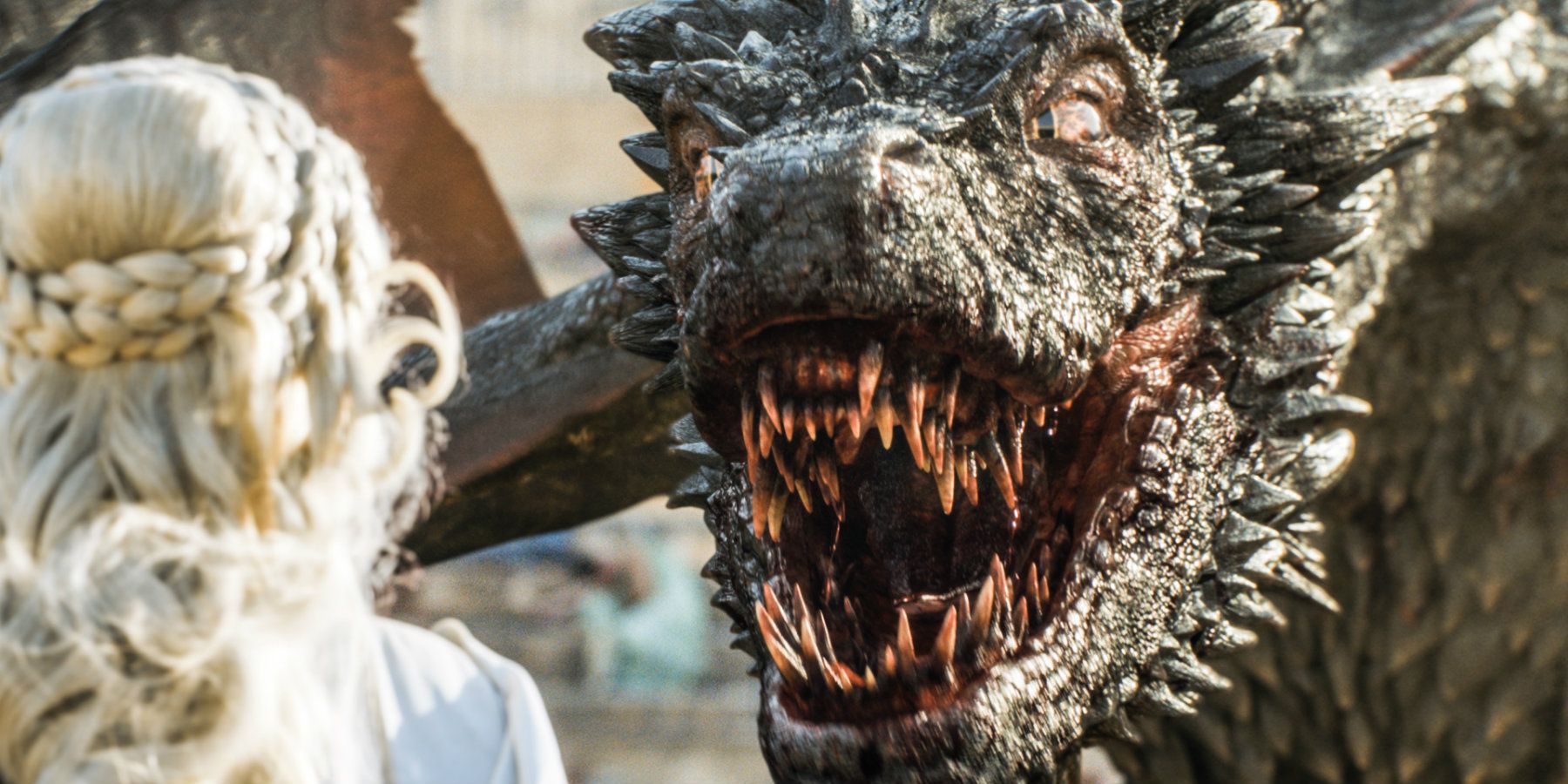Two of HBO's most successful series, Game of Thrones and Westworld are undeniable titans of genre television. Viewers that gravitate towards high fantasy and cerebral sci-fi have found them both highly compelling, with charismatic characters, intriguing locations, and layered storytelling. Game of Thrones ran for 8 seasons, whereas Westworld has only had two, but some aspects of each series are salient despite their difference in length.
While some fans feel they can't truly be compared, when broken down by their core aspects, ways to categorize their efficacy emerge. Where one succeeds at world-building, the other succeeds at plot development. Where one excels at costuming, it may also fail at creative storytelling. Game of Thrones may be over, but Westworld begins Season 3 March 15th only on HBO.
WESTWORLD: FIRST SEASON
Westworld has only had 2 seasons, and its first is viewed by many fans as its best. Not only did it set up an arresting story, it was built on a foundation of complex characters who would grow and change a great deal going into Season 2. Its ending twist made viewers want to tune in the next season to see what happened next.
By contrast, Game of Thrones largely had a mediocre first season, with a lot of exposition, and a lot of characters who audiences felt were largely unlikable. The fan favorite got killed off in the first season, leaving fans split on whether or not they should invest in the next season, or find something else to watch.
GAME OF THRONES: PLOT TWISTS
Both series have a pretty impactful plot twist at the conclusion of their premiere seasons, but on the whole Game of Thrones successfully maintains its melodrama by the sheer number of plot twists it continued to include every season. While the one in Season 1 may have been shocking, it was nothing compared to the deluge of plot twists later on.
Westworld's plot twists vary in salience, and the largest one in Season 1 was telegraphed early according to some fans, thereby eliminating its shock value. On the whole, its plot twists are rooted in its puzzles, which viewers will find either enhance the plot or detract from it.
WESTWORLD: CREATIVE STORYTELLING
While Westworld was based on a '70s sci-fi film by Michael Crichton, after satisfying the main principles of the story (mainly the theme park setting and the nature of the host/guest interactions), it could quickly plot its own course as far as creative license goes. As long as the hosts eventually revolted, the films' quotient was more or less satisfied.
Game of Thrones was at a disadvantage, as it had to follow very well-regarded novels in the fantasy genre, and George R. R. Martin wasn't even done with the final book in the series. When the series writers did use some artistic autonomy, the storyline collapsed and became fragmented to the horror of longtime fans.
GAME OF THRONES: WORLD-BUILDING
Like J.R.R. Tolkien's Middle-Earth in The Lord of the Rings novels, George R. R. Martin's Westeros and surrounding countries are intricate and richly populated fantasy realms. The scope of the series is vast, with characters traveling to various areas that have completely different cultures, economic systems, and politics.
Westworld has a much smaller scale, with most of the series taking place either in the Wild West theme park, or featured locations in the world outside. Viewers have gotten glimpses of other theme parks surrounding it, but until they become fully realized they can't compete with the world-building in Game of Thrones.
WESTWORLD: PSYCHOLOGICAL MYSTERY
Westworld is a series that relies on slowly revealing its hand one card at a time, like Old Bill at a black jack table. It builds upon a mystery of purpose that almost guarantees rewatchability, as viewers struggle to discern what "the game" is, if The Man In Black will win it, and what the stakes are for human and robotkind.
Game of Thrones relies on less psychological mystery, because the series is fairly straightforward. Someone will "win" the game of thrones or they won't. There aren't as many philosophical undertones, and viewers won't question the layered realities they perceive in the series like they will for Westworld.
GAME OF THRONES: COSTUMES
From the very first season, Game of Thrones wowed viewers with its costumes, combining pageantry with grit to create pieces that looked both ornamental and lived in. Characters' costumes even changed gradually over each season, both depending on their own internal journeys and their ever-changing locations. World-building began in part through costuming.
Westworld's costumes are based on history, and the metamorphosis they bring to a character is more subtle over time.The world building of the series wasn't as dependent on the livery, whereas entire fictional cultures and communities, from Westeros to Dorn were shaped by the costuming in Game of Thrones.
WESTWORLD: PLOT DIRECTION
Though the first season is a little confusing, especially given the way Westworld plays with temporal awareness, it still features a generally straightforward plot that keeps building momentum. Too many characters are never introduced all at once, and viewers have a handful of their storylines to follow.
Game of Thrones was straight forward in Season 1, and from that point onward introduced dozens of new character-centered plots (Arya, Bran, Dany, Sansa, etc) that viewers had to keep track of. After Season 5, when the writers ran out of source material from George R. R. Martin, there was no longer an over-arching plot, which made events, locations, and characters even harder to follow by Season 8.
GAME OF THRONES: CHARACTER DEVELOPMENT
There's no denying that over the course of eight seasons Game of Thrones had a lot of character development. The emotional trajectory of Dany alone in the first two seasons is evidence enough, but some characters go through dramatic changes in a mere handful of episodes. There are rarely any static characters, main or supporting.
Westworld is still a young series, but some characters remain relatively unchanged even after two seasons, and not just because they're "hosts". Teddy should have gone through a lot more growth, and fans have been frustrated that even after all the narrative obstacles he's been up against, he's only recently started to convey their affects.
WESTWORLD: CULTURAL RELEVANCE
Westworld asks the sort of broad-reaching, intellectual questions that stick with you well after the series is on hiatus. The concept of what it means to be human, what constitutes intelligence, and the accountability inherent in humankind's progress of creation are themes that are important right now as well as in the future.
Game of Thrones on the other hand is part of our cultural zeitgeist, but it isn't designed to make viewers wax philosophical about futurism or the singularity. Some viewers used the series to start political dialogues, but it was more difficult to do, whereas in the future the world will be having very pointed debates about what to do with Artificial Intelligence.
GAME OF THRONES: ENTERTAINMENT
Whether viewers watch Game of Thrones for political intrigue, character relationships, elaborate costumes, or just the epic battles, there's no denying it's great entertainment. On the surface, it presents fully realized high fantasy, and digging deeper, a cloak and dagger narrative about the scheming machinations of nine noble houses vying for supremacy.
Westworld often becomes overly cerebral, relying on the complexity of its layered narrative to buoy where its failures as entertaining fiction. While some viewers will undoubtedly find it more intriguing than Game of Thrones based on its premise, some will find it wholly inaccessible because of its sense of intellectual elitism.

